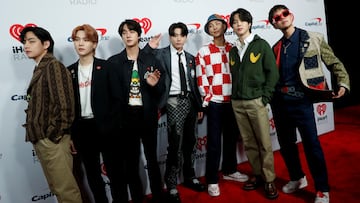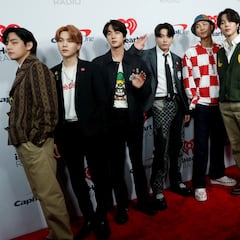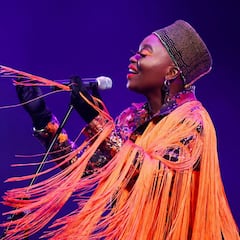K-pop: What does BTS stand for?
The name of K-pop sensation BTS has an interesting origin, we took a look.


In May, the Korean pop band BTS visited the White House to raise awareness on the increase in violence Asian Americans and Pacific Islanders. This raised interest in the pop sensation in the US and many are now wondering where their name comes from.
How did the band form?
In 2010, a top executive at Big Hit Entertainment, CEO Bang Si-hyuk, was interested in taking rappers from Seoul who had gained a following and create a rap group. However, plans changed and in the end a pop boy band. The model was the Seo Taiji and Boys, a band that was popular in the 1990s. The members ended up bringing brought together in 2013 when clips of the group’s music were released, it attracted attention on social media including SoundCloud and YouTube.
The name in Korean is Bangtan Sonyeondan, or the Bangtan Boys. Affinity Magazine, highlighted remarks made by BTS member J-Hope that the name is “profound” and that “‘Bangtan’ means to be resistant to bullets, so it means to block out stereotypes, criticisms, and expectations that aim on adolescents like bullets, to preserve the values and ideal of today’s adolescents.”
2030부산세계박람회 유치 기원 영상
— 2030부산세계박람회 유치 (@2030busanexpo) July 8, 2022
부산세계박람회 홍보대사 방탄소년단의 응원 메세지를 확인하세요
Check out BTS special message, honorary Ambassadors of World EXPO 2030 BUSAN, KOREA#2030부산세계박람회 #BTS #방탄소년단 pic.twitter.com/dtn8H89ggz
When the members were brought together they lived together in a house paid for by the record label where they practiced fifteen hours a day. In 2017, the band underwent a sort of rebranding and the group announced that their name would from then on stand for “Beyond the Scene” as part of their new brand identity.
Diplomatic power of BTS
Since 2018, the South Korean government has used the band as a cultural and political envoy abroad.
That year in September, the band was invited to address the United Nations General Assembly. Later in the year BTS was invited to an event to celebrate the diplomatic relationship between France and South Korea. The group performed at the Korea-France Friendship Concert in Paris.
Related stories
South Korean President Moon Jae-in has made the group a Special Presidential Envoy for Future Generations and Culture.
In this role they are tasked with raising “awareness on global agendas, such as sustainable development, to our future generations and to strengthen the nation’s diplomatic power across the world.” In this capacity they visited the United States in late May.

